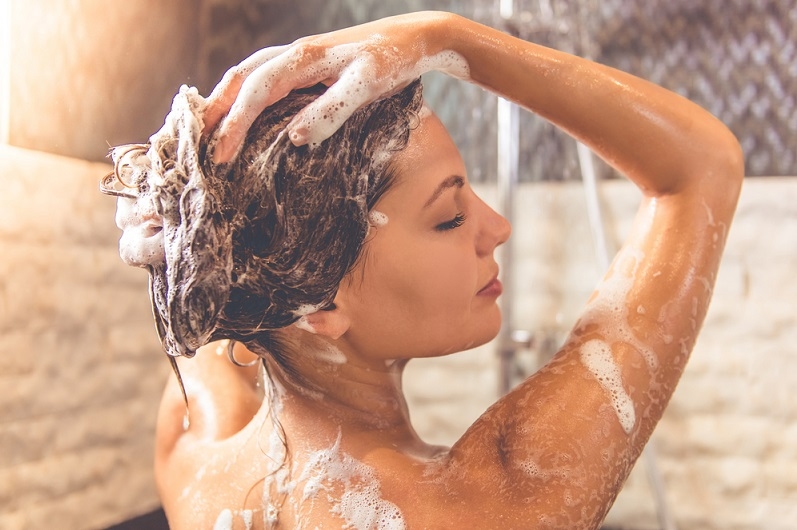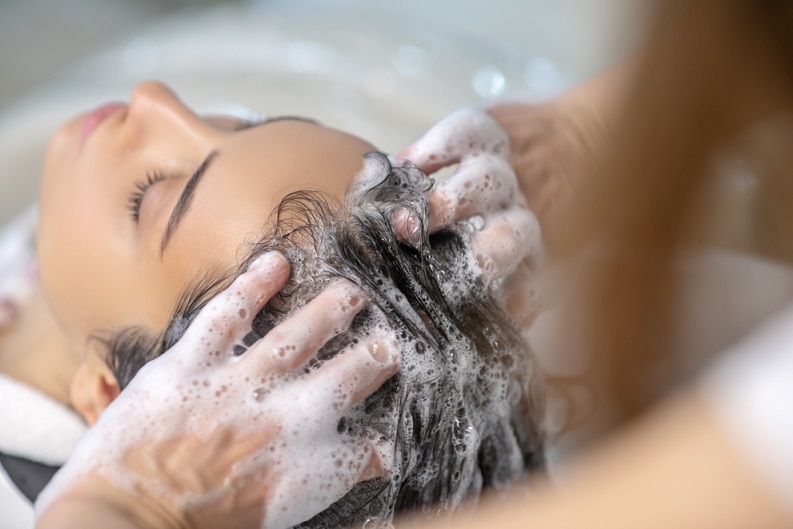Best Hair Shampoos For All Your Hair Problems

The process of selecting a shampoo might be perplexing. There are numerous brands in the market, and each one of them seems to be different. However, choosing the right one will feel like you've won the jackpot. What's more important? It saves a lot of mental exercise and energy. Dermatologists Sharleen St. Surin-Lord and trichologist Shab Reslan also weighed in. They hold board certifications in their respective fields for advice on the best shampoo for different hair types. It turns out that identifying your scalp type is the first step in the entire process. But first, let's learn the different types of shampoos listed below:
The Different Types of Hair Shampoos
- Volumizing shampoos: Use shampoos that don't weigh down your hair if you have fine tresses.
- Hydrating or moisturizing shampoos are a terrific option if you have thick and frizzy hair lacking in moisture.
- For straight and smooth hair, you'll want to use a shampoo with additional moisturizers and smoothing agents to seal the cuticle.
- For wavy hair, balancing shampoos are an excellent all-around choice. Even while they aren't too hydrating, they aren't drying either.
- Using fortifying shampoo for hair that is over-processed, dyed, or highlighted might benefit from strengthening since they include additional protein designed to restore the condition of damaged, brittle, or over-processed hair.
Haircare Products for Oily Hair
Are you worried about oily or greasy scalp? You've probably tried a lot of shampoos and haven't had much success. You've done everything to regulate excessive oil and sebum production, from washing every day (even twice daily) to leaving days to pass between washes. With an oily scalp, here are some things to look for and avoid in a shampoo:
- Shampoos that are hydrating, moisturizing, or helpful for curly hair should be avoided. These products might make your oily hair and scalp even more greasy.
- The words "volumizing," "strengthening," or "balancing" should be looked for on the packaging. As opposed to moisturizers, these products are more effective in removing oil buildup.
- Use caution while using a clarifying shampoo to avoid drying your scalp, especially if you have a very oily scalp.
- Try a double shampoo. As with double scrubbing your face, a double shampoo involves using two distinct shampoos to address different hair care concerns simultaneously. Wash your scalp with one recipe, then use another formula for the rest of your body.
- Rinse your scalp thoroughly after using shampoo to remove any remaining oil from your hair.
- Do not rub conditioner into your scalp after shampooing. Instead, focus on your hair's midshaft and ends. Rinse well to remove any traces of dirt and debris.
Shampoos for dry or flaky scalp
- If your scalp is irritated by dryness, itching, or flaking, the first thing you should do is find the proper shampoo. Choosing a shampoo that doesn't exacerbate your dry scalp is vital.
- Don't use volumizing or strengthening shampoos. These products might deplete your scalp with the essential moisture it requires.
- If your scalp is slightly dry and itchy, search for shampoo labels that encourage moisturizing, smoothing, hydration, or curls on the bottle. These products aid in retaining moisture, which is helpful to those with dry scalps.
- Avoid shampoos that include sulfates, which are incredibly damaging to the hair and scalp and should be avoided.
Essential things to keep in mind
Elasticity is the key to bouncy hair, and elasticity is the key to shine. St. Surin-Lord adds that if your hair lacks bounce, it's probably because it isn't adequately hydrated. She explains that it must not be burdened by thick ointments or silicones. An alternative is to use glycerin, which acts as a humectant to help hydrate a parched scalp. Mango seed oil, like argan oil, is a hydrating and lightweight component to keep an eye out for. Aside from strengthening and hydrating the hair, sunflower seed oil's ceramides and fatty acids also aid in reducing frizz and adding shine.
Is dandruff bothering you? When it comes to the causes of dandruff, Reslan believes that in the vast majority of instances, an oily and flaky scalp condition is to blame. Suppose a person is suffering an imbalance in their scalp and has not altered their surroundings, products, food, or the frequency of their shampoos. In that case, they should seek the advice of a medical practitioner, she advises.

Frequently asked questions about the best shampoos
Q. Is there a difference between a medicated shampoo and an ordinary shampoo?
Certain scalp disorders, such as itching and scalp rashes, can be alleviated using a medication-based shampoo. ZPTO or ketoconazole for dandruff, keratin for hair loss, salicylic acid or coal tar for seborrheic or psoriasis, for example, are some of the ingredients included in these products.
Q. What are some things to look out for when purchasing shampoo?
- Sodium sulfate is a popular surfactant present in many commercially available shampoos. Sulfates can cause dryness and breakage if used regularly. Use SLS and SLES-free shampoos when you plan to use them frequently.
- Do not use shampoos that are scented with chemicals. For example, they may induce itchy skin or anaphylactic shock in people who are allergic to them.
- There are gentle cleaning chemicals in a regular shampoo suited for all hair types.
- Those with dry hair should look for a shampoo that has moisturizing components.
- A volumizing shampoo is also recommended for those with greasy hair to get a fuller, bouncier look.
- Sulfates, silicones, and other potentially toxic compounds should be avoided in shampoos to prevent dryness and irritation of the skin.
Q. Is shampooing frequently cause an increase in hair growth?
According to cosmetic chemist Ron Robinson, shampoos can aid hair growth, but not just as a means of it. "Because shampoos are washed off so quickly, the compounds don't have time to affect the scalp substantially." Although he points out that shampoos can aid hair growth in the long term, they have additional benefits. Most over-the-counter growth shampoos contain amino acids and antioxidants, which help restore damaged hair and reduce inflammation.

Conclusion
The hair care routine is as essential as a skincare routine. Unfortunately, the majority of commonly available hair shampoos offer very little to safeguard or promote the health of your hair. Not every shampoo is suitable for every kind of hair. The oily hair and scalp may need to be shampooed more frequently than those with dry scalps. Shampoos include elements that are both cleaning and conditioning. Depending on the kind of hair, the amount of each component varies. The hair type might impact the type of hair shampoo you use.
Many women today are facing hair fall issues. Because of this, WomenWire.com provides you with information on the many shampoos made with the most powerful technology to ensure that your hair is healthy and attractive. They'll give you the hair you've always wanted, regardless of what sort of hair you have.
This content was created by AI
